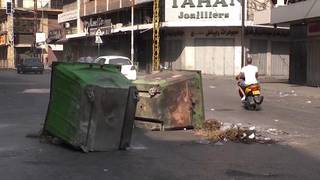Lebanon Faces Dire Crisis After the Elite Plundered the State for Decades, Exacerbating Inequality

Lebanon is days away from a social explosion," according to the country's prime minister, amid what the World Bank has described as one of the worst economic depressions in modern history. The country's currency has lost more than 90% of its value, unemployment has skyrocketed, and fuel prices have soared. Most homes and businesses, and even hospitals, only have power for a few hours each day, and pharmacies are running low on medicine. The U.N. has warned over three-quarters of households in Lebanon do not have enough food or money to buy food. Lebanon is also facing a massive political crisis following the devastating explosion at the Port of Beirut last August, which killed over 200 people, injured 7,000 and left more than a quarter-million Beirut residents unhoused. Nisreen Salti, an economics professor at the American University of Beirut, says the entire system crumbled" in Lebanon due to decades of structural inequality. The business and political class that benefited from the system was able to plunder the economy for 20-odd years," Salti says. We also speak with Middle East scholar Ziad Abu-Rish of Bard College. He says the economic crisis and the port explosion, for which there have been no major prosecutions, both reveal the impunity with which the country's elites operate. Part of the problem is the total lack of accountability," Abu-Rish says.